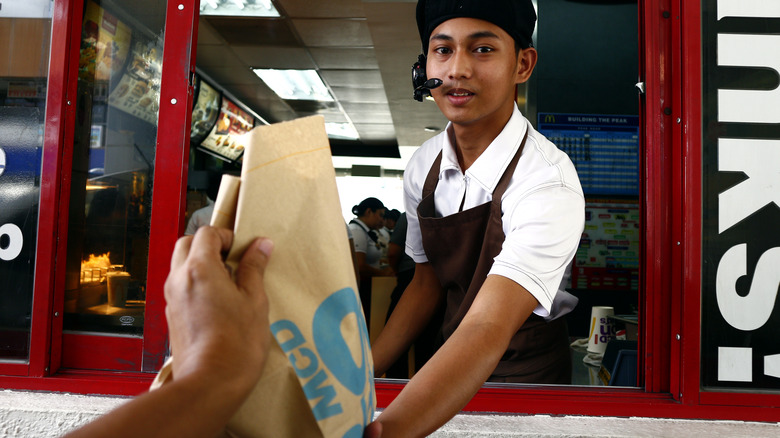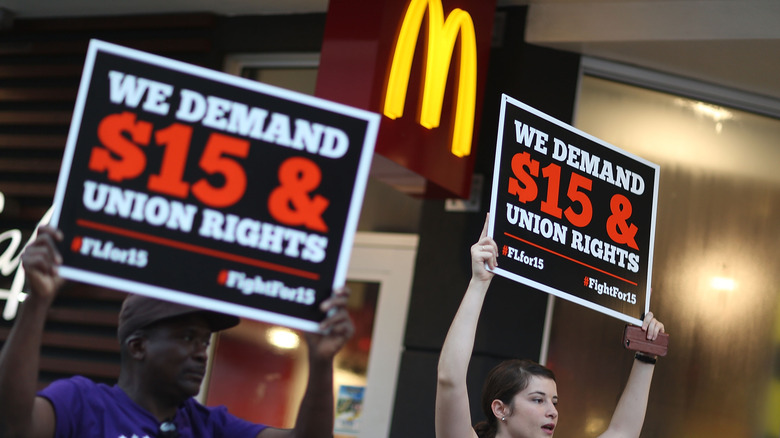The Bill That Could Change Everything For California Fast Food Employees
A life without fast food is such a strange thought that it's almost impossible to comprehend. How would people feed their cravings for deep-fried chicken nuggets? Would a hangover ever be cured? What would Donald Trump eat? We owe so much to the irresistibly tasty and overwhelmingly greasy food that we probably take it for granted — fast-food workers certainly seem to think so.
It's often overlooked that producing all of those salty and sugary treats in hot and busy kitchens is an army of dedicated fast-food workers (of which there are over 3.4 million in the U.S. alone, estimates the U.S Bureau of Labor Statistics). The data suggests that the majority of fast-food employees earn less than $15 an hour, and Vox reports workers having to deal with a difficult work-life balance, stress, and rude customers.
Scandals have also affected major fast food companies, including a CBS News report of McDonald's employees facing harassment from co-workers, and Jack in the Box staff protesting over poor pay and conditions (according to Left Voice). Now, legislation recommended in California intends to boost the labor rights of fast-food workers.
Fast food workers want more control over their pay and conditions
In a landmark step to give fast food workers more control over their employment contracts, legislators in California have approved the Fast Food Accountability and Standards Recovery Act, reports The Counter. The bill — which requires state senate approval to be implemented — would permit the creation of a Fast Food Sector Council, responsible for sending pay and working conditions recommendations to legislators.
The council would include representatives of fast food workers, allowing them greater involvement in decisions about how they are treated. Fast food businesses with more than 30 outlets nationally would be held liable for breaches (as would franchisees), encouraging greater consideration of workers' needs and desires. Opinions of researchers are split between whether the bill would encourage businesses to act more responsibly and improve standards, or add extra costs that might cause job losses, details The Counter.
Low pay has been suggested as a reason for labor shortages in the fast food industry. As a result, The Seattle Times indicates that companies have been offering higher salaries and improved benefits in attempt to lure people back.

